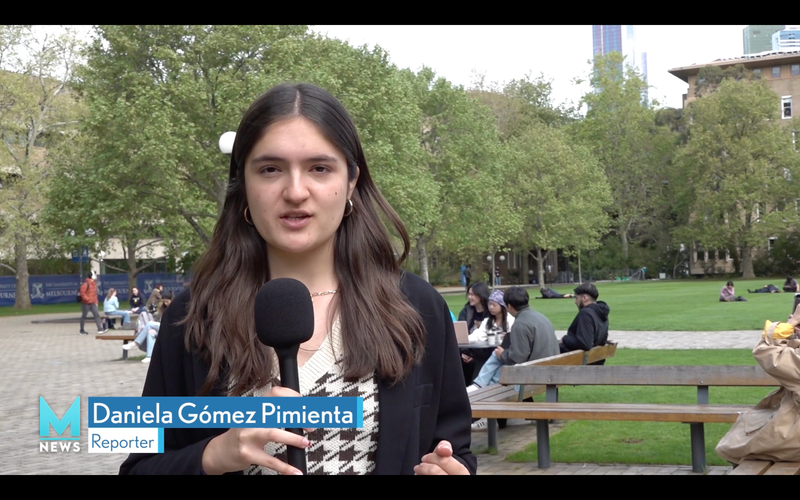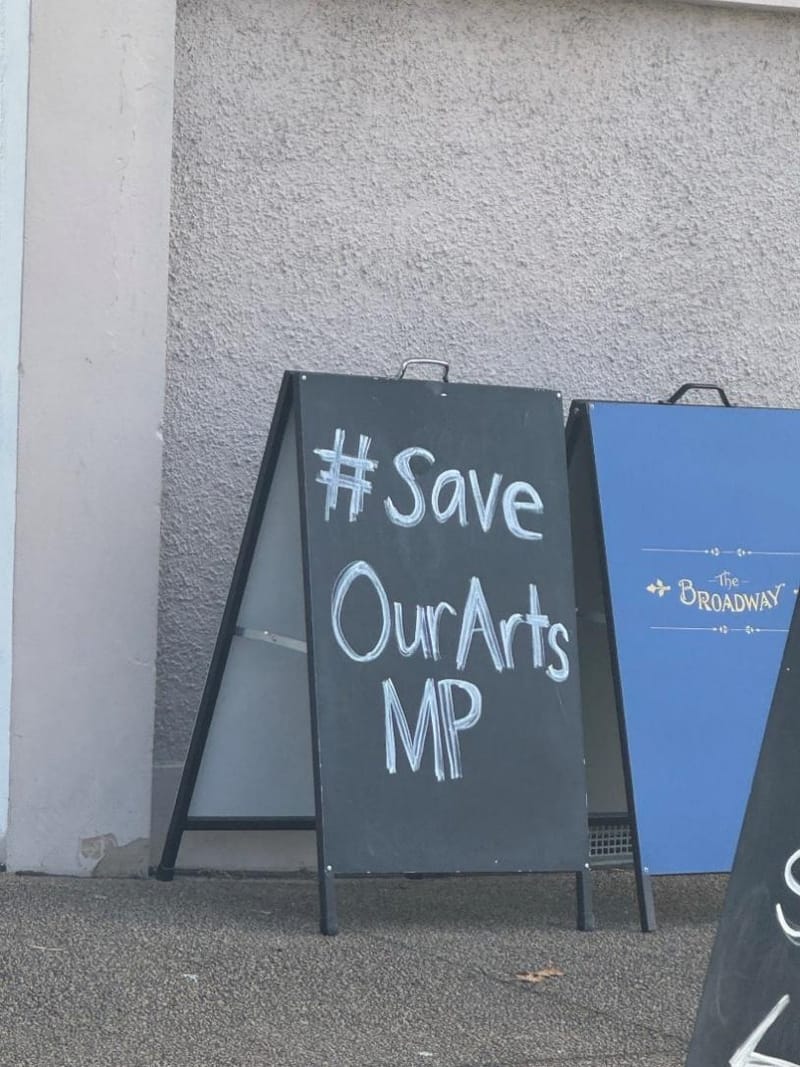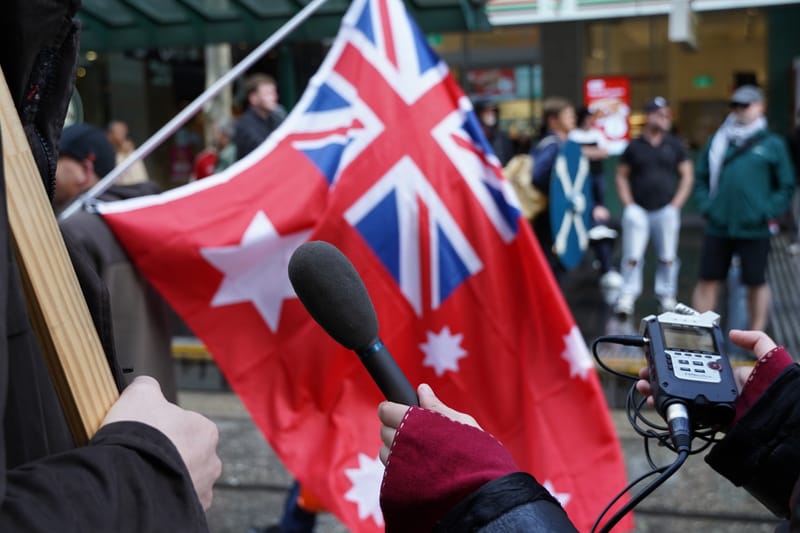Monash students stand in solidarity with casual staff
A student protest group is preparing to rally to save jobs of sessional academics and casual university staff members.
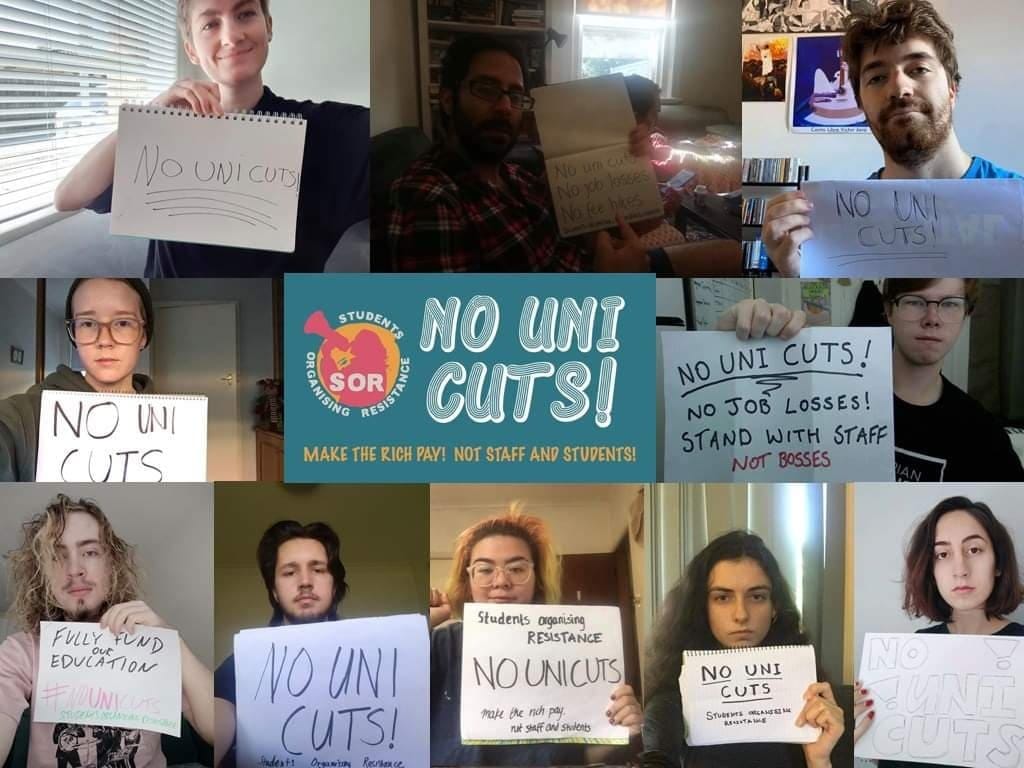
BY SALONEE MISTRY
Monash University students are fighting for the rights of the university’s casual staff members who have been adversely affected due to the pandemic.
The Monash Students Organising Resistance (SOR) group aims to spread awareness among students about the issues faced by staff members who have been stood down due to the pandemic.
Resistance group co-organiser and third-year arts student Corey Everitt said staff losing their jobs has a great impact on students.
“Less tutors could mean bigger class sizes and less space for discussion,” Mr Everitt said.

“Our group is attempting to defend the rights we have as students to a proper education, which could be compromised with staff being stood down and more workload on the ones still employed.”
The group is currently investigating the university’s plans for semester two by getting in touch with the academic board and the university council, seeking clarity.
A petition has also been started by the group in solidarity with the staff members in their fight against the NTEU Job Framework.
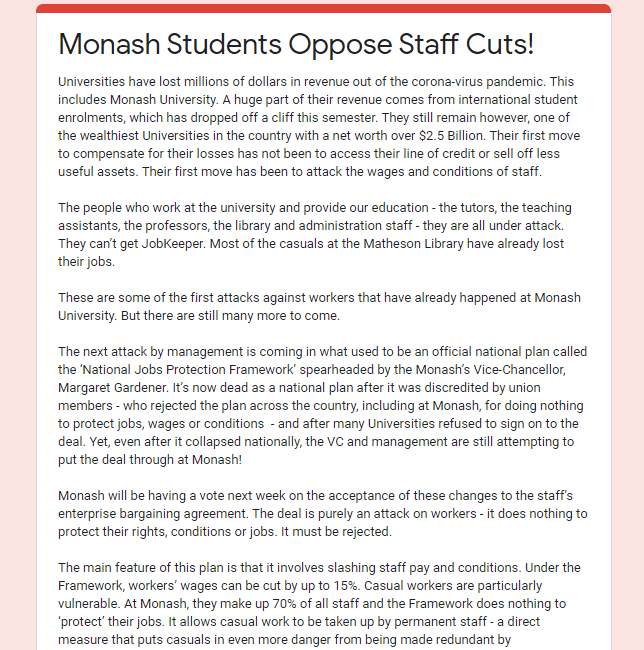
It calls for students to declare their support for the ‘no vote’ campaign against the changes outlined in the framework and reinstating staff who have been stood down or have had work hours cut.
The group has an active core team of about 24 students spread across all faculties, including arts and engineering students, and both international and domestic students.
A member of the Monash Casuals Network, Dr Giles Fielke said students reaching out to staff and being a part of the discussion is a great initiative.

“The initiative tells us that the students from the university are acutely aware of what is happening, with the variation to the Enterprise Agreement and the changes to the higher education system directly affecting their learning environments,” Dr Fielke said.
"Staff working conditions are student learning conditions is something that I think needs to be better understood and this is a great example of that.”

Dr Fielke is a tutor for a Monash Design and Architecture first year unit and his main concern is the uncertainty and insecurity in the future of his career.
“The problem we are facing is really a systemic one where there is no job security for the 73% of university workers casualised by Monash's employment agreement", Dr Fielke said.
“As we've seen this semester casual staff can be fired with little notice and no protections," he said.
“We don’t know if we will have work tomorrow, if the work will change, and if we will be paid properly for the work we do.”
NTEU Monash branch president Ben Eltham addressed misinformation being circulated by MSORG that union members had voted down the framework.
More than 83 per cent of Monash NTEU members voted to support the framework on June 18.
A second vote will be open tomorrow to all university staff, with union members to get a second vote.
"The NTEU stands with all Monash staff during the crisis in higher education. The cause of the crisis is the failure of the Morrison government to adequately support Australian universities," Dr Eltham said.
"We have consistently said our number one priority is to save as many jobs as possible at Monash. The NTEU has negotiated with Vice-Chancellor Gardner to give up pay rises in order to save190 full-time equivalent jobs (under the framework).
"A vote of NTEU members at Monash demonstrated overwhelming support for the Jobs Protection Framework.
"We continue to pressure Monash management to reinstate casual and fixed-term staff who have been let go during this crisis."
A Monash University spokesperson said there was currently an incredible amount of misinformation and assertions being spread through the public domain.
“The university values freedom of expression and expects all members of our community to adhere to the Monash values in conveying these expressions,” the spokesperson said.
“The university has not stood down and does not plan to stand down staff.
“We have not made any changes to class sizes in our response to COVID-19. The quality of our education and the outcomes remain the same," the spokesperson added, addressing a concern raised by the resistance group.
The spokesperson said there were no planned cuts to semester two 2020 units at this stage, however the delivery of most of the units will be taught with a combination of on-campus and online activities.
“We have taken many measures to meet the revenue shortfall the university will experience this year and next, including cuts to non-salary expenditure and capital expenditure, using our cash reserves, increasing our borrowings to the maximum we are permitted, and volunteered salary cuts by the Vice-Chancellor’s Group."
Due to the impact of COVID-19 on university operations in semester one, 477 casual staff and 26 sessional academics were no longer required for the remainder of the semester, according to the university spokesperson.
"These staff will have priority where we require this work again in semester two, as we slowly reactivate our Australian campuses," the spokesperson said.
Monash has committed to use casuals and sessionals in 2021 at the same level as 2020 where the work is required, the spokesperson said.
The university expects to suffer a downturn in revenue and has forecast a $350 million shortfall this year, which is anticipated to increase in 2021, according to a report by The Age.
SOR’s long-term vision revolves around collective action including protests, boycotts and mass meetings of students, Mr Everitt told MOJO News.
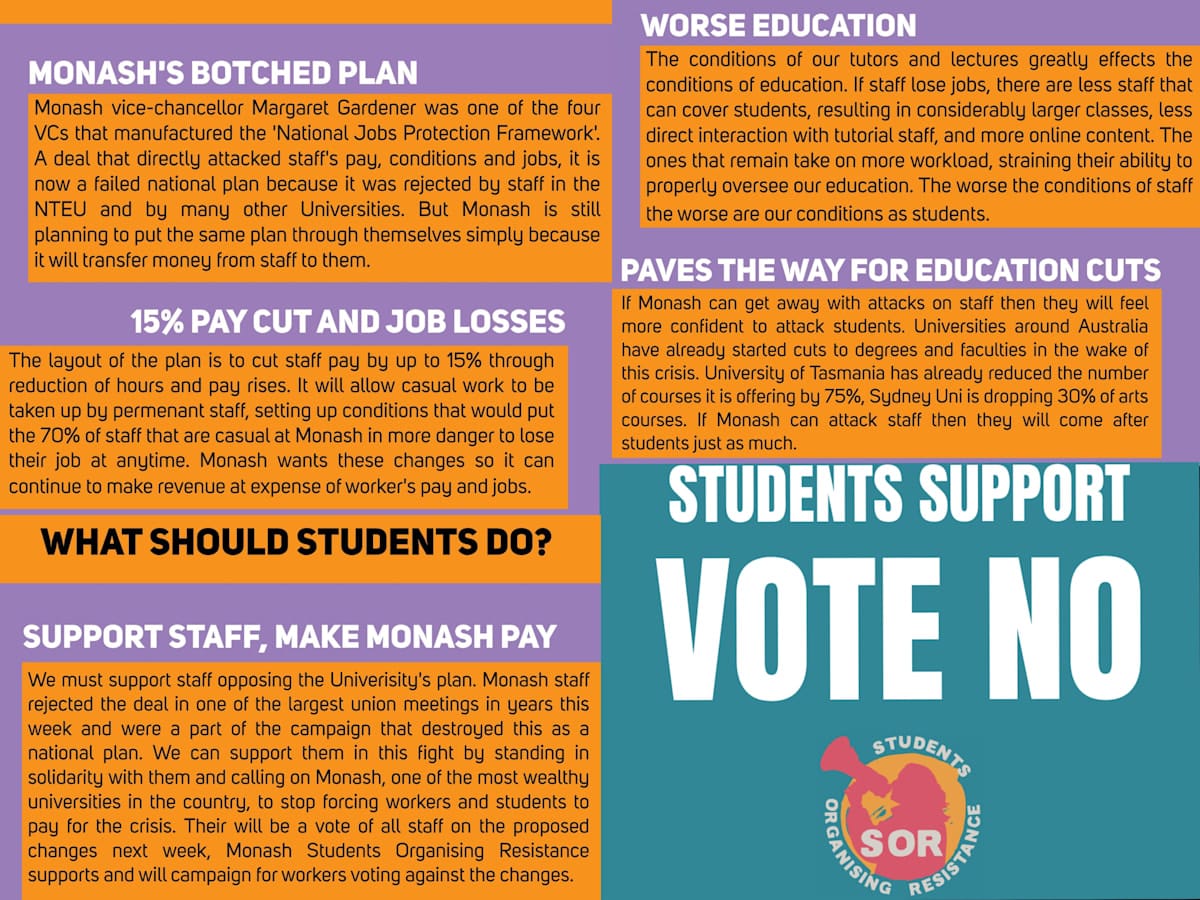
“It's hard to do those things with social distancing being a necessity. However we believe having a militant fight back, on or off campus, against the rich and powerful that determine our education and attack our rights is what is needed,” he added.


